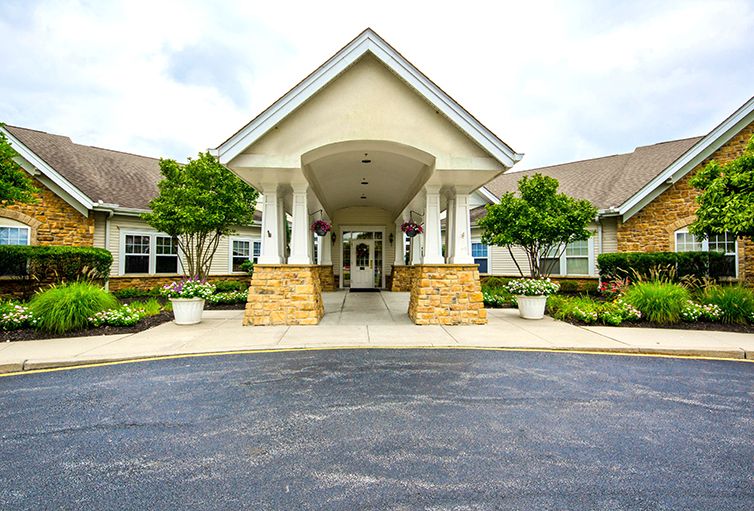Discover Boutique Memory Care Programs with a Warm Touch Near You
Discover Boutique Memory Care Programs with a Warm Touch Near You
Blog Article
All Concerning Memory Treatment Services: Why Tiny Memory Care Residences Are a Fantastic Selection
Memory treatment services play a vital role in sustaining people with Alzheimer's and mental deterioration. Little memory treatment homes attract attention for their individualized approach and intimate setting. With lower staff-to-resident proportions, these homes cultivate more powerful connections and customized treatment. Homeowners take advantage of enhanced social interactions and a secure environment. As family members discover options, recognizing the special benefits of small memory care homes ends up being crucial. What aspects should be considered when choosing the ideal home?
Comprehending Memory Care Solutions
While lots of might know with general elderly treatment alternatives, recognizing memory care services is necessary for family members facing the obstacles of cognitive decline. Memory care particularly accommodates individuals with conditions such as Alzheimer's disease and other forms of dementia. These solutions give a structured atmosphere that concentrates on boosting the lifestyle for homeowners with specialized care and support.Memory treatment facilities are made to ensure security and security, often including safeguarded atmospheres to stop straying. Trained team member are offered around the clock to help with everyday activities, drug monitoring, and individual care. In addition, memory treatment programs frequently consist of cognitive excitement tasks, customized to engage citizens and advertise mental wellness. Family members can gain from comprehending these solutions, as they allow notified decisions concerning their enjoyed ones' care, making certain that their specific requirements and choices are attended to in a caring and supportive manner.
The Advantages of Tiny Memory Care Homes
Small memory care homes supply distinct advantages that can substantially enhance the high quality of life for homeowners with cognitive problems. One significant advantage is the intimate setting, which permits personalized interactions amongst team and homeowners. This smaller sized setup cultivates significant relationships, decreasing sensations of seclusion and stress and anxiety often experienced by individuals with memory issues.Additionally, the reduced staff-to-resident proportion in little memory treatment homes allows caretakers to offer more alert supervision and assistance. This strategy not just boosts safety and security yet additionally advertises a complacency for the residents.Moreover, little memory treatment homes can adjust promptly to the unique demands and preferences of each homeowner, enabling an extra homey atmosphere. Such an environment can encourage social interaction and participation in tasks, inevitably enriching the everyday experiences of those dealing with cognitive impairments.
Personalized Care Plans for Homeowners
Personalized treatment plans are essential in memory care homes, as they satisfy the one-of-a-kind requirements and preferences of each resident. These plans begin with detailed analyses performed by competent specialists, who examine cognitive abilities, case history, and personal rate of interests. This tailored approach assurances that care is not just reliable but also considerate of each person's self-respect and autonomy.Moreover, personalized care plans are versatile, allowing changes as residents' requirements develop with time. This versatility cultivates a complacency and familiarity, which is vital for people dealing with memory obstacles. Caretakers are trained to execute these strategies regularly, giving assistance that straightens with the homeowners' regimens and preferences.Ultimately, personalized treatment strategies boost the quality of life for locals by promoting well-being, self-reliance, and interaction, making them a basic element of memory care solutions in small memory care homes.
Creating a Home-Like Atmosphere
Developing a home-like environment is crucial for cultivating convenience and familiarity in memory care setups, as it substantially impacts homeowners' psychological wellness. Tiny memory care homes frequently focus on tailored touches, such as cozy shade palettes, family images, and acquainted furniture arrangements, which assist locals feel more secure. Integrating elements reminiscent of a conventional home, like relaxing living areas and common locations, encourages a sense of belonging.Moreover, using natural light and outdoor spaces can boost the atmosphere, promoting relaxation and harmony. Personnel play a considerable function in maintaining this environment by engaging with residents in a caring way, treating them like family. Routine activities, such as food preparation or horticulture, can also add to a home-like feel, providing possibilities for homeowners to take part in meaningful experiences. Generally, creating a nurturing setting supports cognitive feature and emotional stability, making it an essential facet of memory care services.
Boosted Social Communication and Community
Improved social communication and neighborhood are crucial parts of memory treatment services. By promoting personalized social interaction and producing a family-like ambience, these solutions advertise significant connections among homeowners. Team activities and occasions additionally motivate participation, aiding people really feel a lot more included and sustained.
Personalized Social Involvement
While social communication is vital for general wellness, lots of individuals with memory impairments typically struggle to involve meaningfully with others. Personalized social engagement in memory treatment homes addresses this challenge by producing tailored activities that accommodate homeowners' special rate of interests and capabilities. By focusing on individual choices, caregivers can foster connections that resonate deeply with everyone. Activities such as art treatment, songs sessions, and directed discussions advertise cognitive stimulation and psychological expression. Additionally, small team settings encourage sociability and permit for even more intimate interactions, boosting sensations of belonging. This method not only combats feelings of isolation yet also encourages homeowners to keep a feeling of identification, eventually adding to enhanced psychological wellness and quality of life.
Family-like Atmosphere
In a memory care setting, cultivating a family-like environment greatly boosts social interaction and builds a sense of neighborhood among residents. Smaller sized memory care homes commonly focus on intimate environments, allowing citizens to develop closer links with each other and employee. This nurturing ambience advertises count on, which is necessary for individuals with memory disabilities. Residents are most likely to involve in discussions and share experiences, creating a helpful network that relieves sensations of solitude. The knowledge of shared rooms and regimens contributes to a feeling of belonging, additionally encouraging social interaction (personalized memory care). In such settings, emotional bonds thrive, causing boosted total well-being and a greater quality of life for residents as they browse their everyday experiences together
Group Activities and Occasions

Security and Safety And Security Features in Small Homes
Lots of tiny homes designed for memory treatment integrate vital safety and security and security features to ensure the health of locals. These homes often utilize safe access and departure points to avoid wandering, an usual worry amongst people with memory problems. In addition, monitoring systems and alarm system devices improve monitoring, making sure that personnel can immediately reply to any uncommon activities.Interior formats are customized for safety, with reduced threats such as sharp corners and clutter-free pathways. Handrails and non-slip floor covering are typically mounted to decrease the risk of falls. Team member are learnt emergency methods, guaranteeing they are planned for numerous situations.Moreover, customized treatment plans might include analysis of private security demands, giving customized options for each and every resident. In general, these security and safety and security functions create a caring setting where homeowners can prosper while preserving their self-respect and self-reliance.
Exactly how to Choose the Right Memory Care Home
Just how can households ensure they select one of the most suitable memory care home for their liked ones? The decision calls for my review here careful consideration of numerous elements. Initially, households should examine the center's personnel certifications and training, guaranteeing that caretakers are experienced in taking care of memory-related conditions. Next, it's essential to assess the home's setting, focusing on safety attributes and whether it promotes a sense of area and belonging. Checking out the center can offer check insight right into daily activities and the social ambience, which are essential for psychological excitement and emotional well-being. Additionally, households need to ask about the care plans supplied, guaranteeing they are customized to individual needs. Finally, considering the home's location and accessibility for family members check outs can add to a smoother change. By addressing these aspects, households can make an educated decision that prioritizes their liked one's convenience and top quality of life in a memory care setting.
Often Asked Questions
What Certifications Should Team Members in Memory Treatment Homes Have?
Team member in memory care homes should have appropriate accreditations, experience in mental deterioration treatment, strong interaction skills, and compassion. Ongoing training in behavioral management and therapeutic interventions boosts their capability to sustain citizens efficiently.
Exactly How Do Memory Care Provider Differ From Standard Assisted Living?
Memory care services concentrate especially on individuals with memory disabilities, offering specialized assistance and organized atmospheres. On the other hand, traditional assisted living uses general support with everyday activities, doing not have the tailored method needed for those with cognitive challenges.
What Sorts of Tasks Are Supplied in Memory Treatment Homes?
Memory care homes generally supply a variety of tasks created to involve homeowners. Typical options consist of art treatment, music sessions, cognitive video games, exercises, horticulture, and social events, all targeted at enhancing well-being and cognitive feature.
Can Citizens Bring Their Own Belongings to Memory Treatment Houses?
Homeowners can typically bring their own valuables to memory treatment homes, allowing them to customize their living room - personalized memory care. This method helps develop an acquainted environment, advertising comfort and a feeling of identity for the individuals

Exactly How Are Member Of The Family Involved in the Treatment Process?
Member of the family play a necessary function in the treatment procedure, typically taking part in decision-making, participating in care conferences, and offering emotional support. Their involvement cultivates a collaborative environment, enhancing the citizen's overall well-being and lifestyle. While several may be familiar with general senior treatment options, comprehending memory treatment solutions is important for households facing the difficulties of cognitive decrease. These solutions provide an organized atmosphere that concentrates on improving the quality of life for locals through specialized care and support.Memory care facilities are designed to assure security and protection, usually including protected environments to protect against wandering. Customized care strategies are essential in memory care homes, as they cater to the special requirements and choices of each visit here local. Staff participants in memory treatment homes need to possess appropriate qualifications, experience in mental deterioration treatment, solid interaction skills, and empathy. Memory treatment solutions concentrate specifically on people with memory disabilities, offering specialized assistance and structured environments.
Report this page